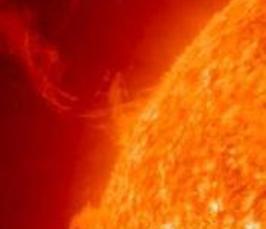European Solar Physics Online Seminar Archive
Following an initiative by the University of Oslo the MPS will participate in the "European Solar Physics Online Seminar" series (ESPOS). Details can be found here: https://folk.uio.no/tiago/espos/
The aim of this video conference series is to promote ideas more widely with a specialized audience, and give some exposure to cutting-edge research for students and other young researchers that do not regularly travel to conferences. The ESPOS series is planned to take place every second Thursday at 11am.
The aim of this video conference series is to promote ideas more widely with a specialized audience, and give some exposure to cutting-edge research for students and other young researchers that do not regularly travel to conferences. The ESPOS series is planned to take place every second Thursday at 11am.
